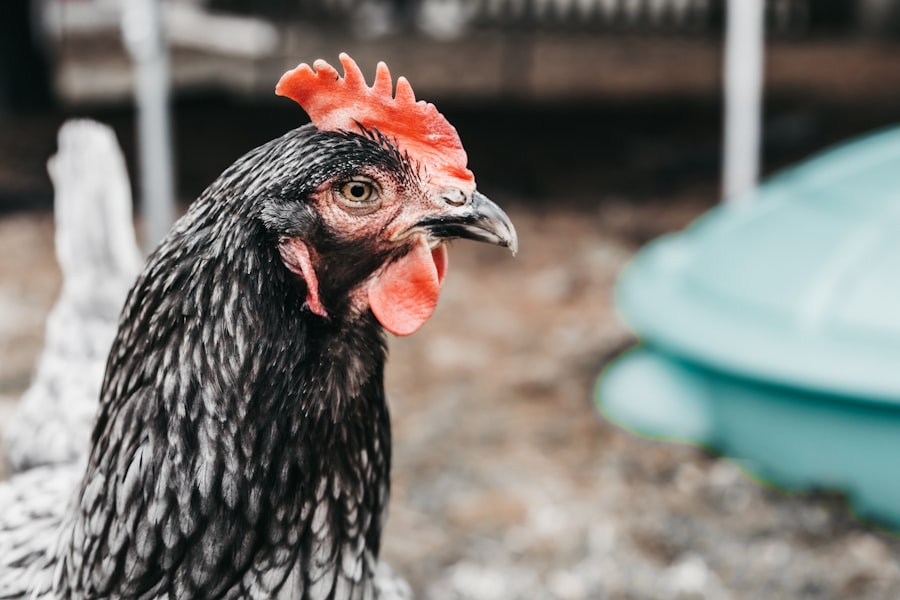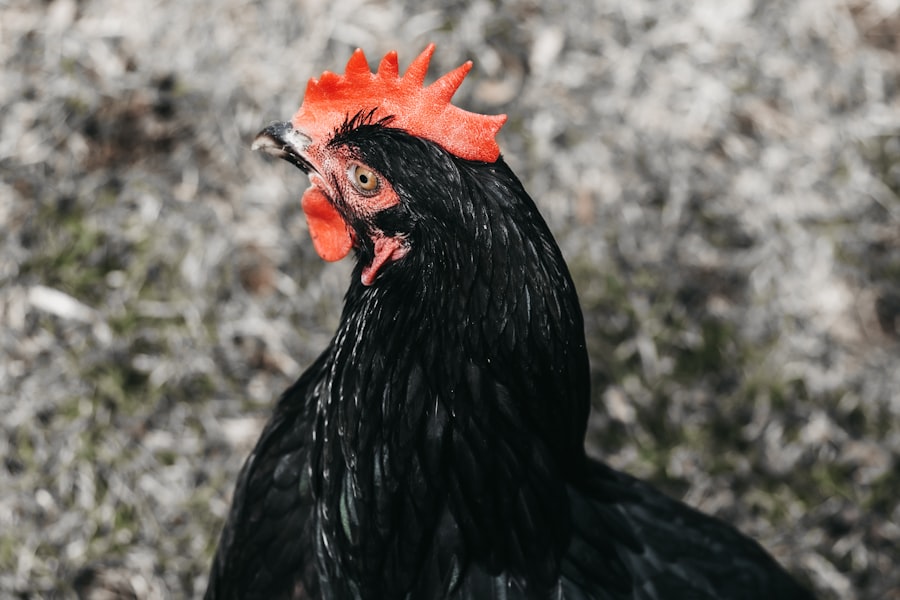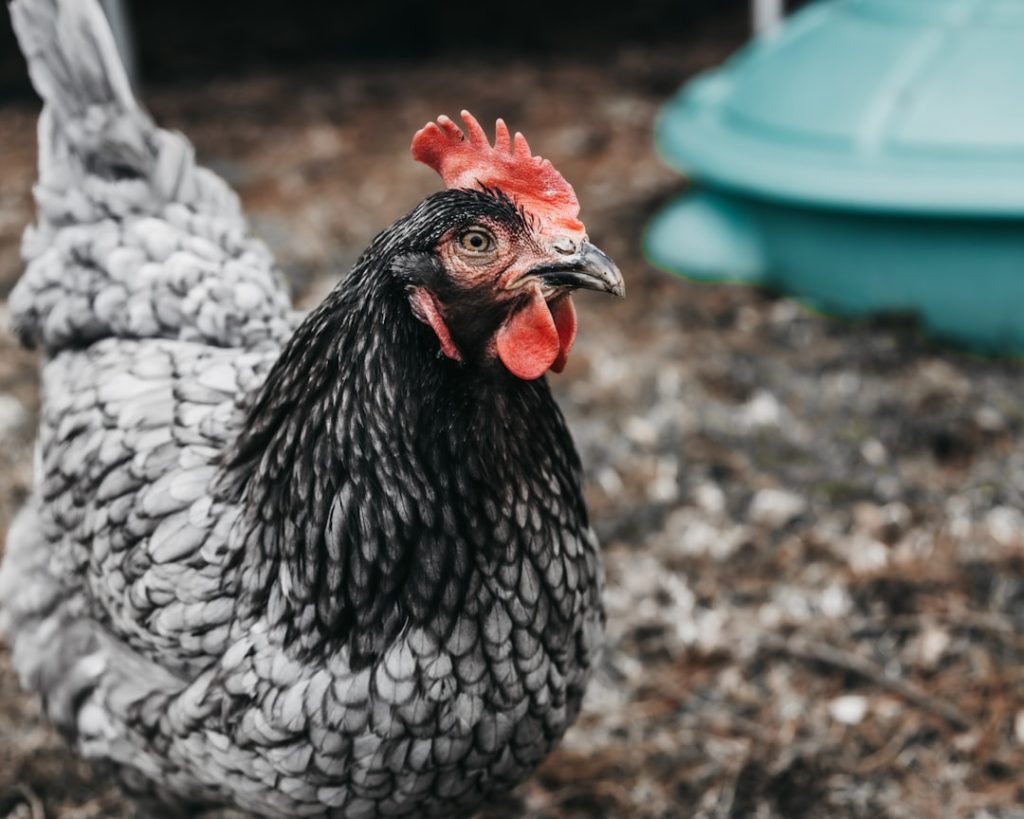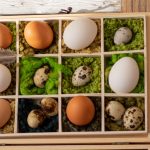When selecting a pen for chickens, several key factors should be considered. The size of the enclosure is crucial, as chickens require ample space for movement, scratching, and pecking. Insufficient space can lead to stress and behavioral problems.
Security is another vital aspect; the pen must be predator-proof to protect chickens from threats such as foxes, raccoons, and birds of prey. Flooring is an important consideration in chicken pen design. Options include traditional dirt or grass, as well as materials like sand or wood shavings.
Each flooring type has advantages and disadvantages that should be carefully evaluated. The pen’s layout is also significant, including the placement of nesting boxes, roosts, and feeding and watering stations. A well-designed chicken pen takes into account the size requirements, security measures, flooring options, and overall layout.
These factors contribute to the health, safety, and comfort of the chickens. By addressing these aspects, chicken keepers can create an environment that promotes the well-being of their flock and supports natural behaviors.
Table of Contents
- 1 Providing Adequate Shelter and Protection
- 2 Ensuring Proper Ventilation and Airflow
- 3 Maintaining Cleanliness and Hygiene
- 4 Providing Access to Food and Water
- 5 Creating Enrichment and Entertainment for the Chickens
- 6 Monitoring and Maintaining the Health of Your Flock
- 7 FAQs
- 7.1 What are the benefits of keeping chickens in a pen?
- 7.2 What should be considered when building a chicken pen?
- 7.3 What should be included in a chicken pen?
- 7.4 How can I keep chickens safe from predators in the pen?
- 7.5 What type of food and water setup is best for a chicken pen?
- 7.6 How can I maintain cleanliness in a chicken pen?
Key Takeaways
- Choose a pen with sturdy construction and ample space for your chickens to move around comfortably.
- Provide a secure shelter that protects your chickens from predators and harsh weather conditions.
- Ensure proper ventilation in the pen to prevent the buildup of harmful gases and maintain good airflow.
- Regularly clean the pen and remove any waste to prevent the spread of diseases and maintain hygiene.
- Make sure your chickens have easy access to fresh food and water at all times to keep them healthy and well-nourished.
- Create a stimulating environment for your chickens with toys, perches, and other forms of enrichment.
- Monitor your flock’s health regularly and seek veterinary care when needed to maintain their well-being.
Providing Adequate Shelter and Protection
The Coop: A Safe Haven
The coop should be well-ventilated to prevent moisture buildup and allow for proper airflow, but it should also be insulated to keep your chickens warm in colder weather. Additionally, the coop should have nesting boxes where your hens can lay their eggs in a safe and comfortable environment.
The Run: A Space to Roam
In addition to a secure coop, it’s important to provide your chickens with access to a run where they can stretch their legs and enjoy some fresh air and sunshine. The run should be enclosed with wire mesh to keep out predators, and it should also have a roof or cover to protect your chickens from aerial threats.
Adequate Shelter and Protection: Key to Health and Well-being
Providing your chickens with adequate shelter and protection will help keep them safe and comfortable, allowing them to thrive in their environment. By providing your chickens with adequate shelter and protection, you can help ensure that they are safe and comfortable in their environment.
Ensuring Proper Ventilation and Airflow

Proper ventilation and airflow are crucial for maintaining a healthy environment for your chickens. A well-ventilated coop helps prevent the buildup of moisture, which can lead to respiratory issues and other health problems for your flock. Good airflow also helps regulate temperature and reduce ammonia levels, creating a more comfortable living space for your chickens.
To ensure proper ventilation, consider adding windows or vents to your coop, as well as ensuring that there is adequate space between the walls and roof for air to circulate. In addition to ventilation in the coop, it’s important to consider airflow in the run as well. Providing open areas or gaps in the fencing can help promote airflow and prevent stagnant air from building up in the run.
This can help reduce odors and improve air quality for your chickens. By ensuring proper ventilation and airflow in both the coop and run, you can help create a healthier environment for your flock. Proper ventilation and airflow are essential for maintaining a healthy environment for your chickens.
A well-ventilated coop helps prevent the buildup of moisture and reduces the risk of respiratory issues and other health problems for your flock. Good airflow also helps regulate temperature and reduce ammonia levels, creating a more comfortable living space for your chickens. In addition to ventilation in the coop, it’s important to consider airflow in the run as well.
Providing open areas or gaps in the fencing can help promote airflow and prevent stagnant air from building up in the run. By ensuring proper ventilation and airflow in both the coop and run, you can help create a healthier environment for your flock.
Maintaining Cleanliness and Hygiene
Maintaining cleanliness and hygiene in your chicken coop is essential for preventing disease and promoting the overall health of your flock. Regular cleaning of the coop and run is crucial for removing waste, spilled feed, and other debris that can attract pests and harbor harmful bacteria. This includes regularly removing soiled bedding from the coop and replacing it with fresh material, as well as raking or turning over the soil in the run to prevent the buildup of waste.
In addition to regular cleaning, it’s important to practice good hygiene when handling your chickens and their eggs. This includes washing your hands thoroughly after handling chickens or their eggs, as well as wearing gloves and protective clothing when cleaning the coop or handling waste. By maintaining cleanliness and practicing good hygiene, you can help prevent disease and promote the overall health of your flock.
Maintaining cleanliness and hygiene in your chicken coop is crucial for preventing disease and promoting the overall health of your flock. Regular cleaning of the coop and run helps remove waste, spilled feed, and other debris that can attract pests and harbor harmful bacteria. This includes regularly removing soiled bedding from the coop and replacing it with fresh material, as well as raking or turning over the soil in the run to prevent the buildup of waste.
In addition to regular cleaning, it’s important to practice good hygiene when handling your chickens and their eggs. This includes washing your hands thoroughly after handling chickens or their eggs, as well as wearing gloves and protective clothing when cleaning the coop or handling waste. By maintaining cleanliness and practicing good hygiene, you can help prevent disease and promote the overall health of your flock.
Providing Access to Food and Water
Providing access to food and water is essential for meeting the nutritional needs of your chickens. It’s important to provide a balanced diet that includes a mix of commercial feed, grains, fruits, vegetables, and kitchen scraps. Additionally, access to fresh water is crucial for keeping your chickens hydrated and healthy.
Make sure that waterers are kept clean and free of debris, and that they are placed in a location where they won’t easily become contaminated. In addition to providing access to food and water, it’s important to consider how these resources are provided. For example, using hanging feeders can help prevent feed from becoming soiled or contaminated with droppings, while nipple waterers can help keep water clean by preventing spillage.
By providing access to clean food and water in a way that minimizes contamination, you can help ensure that your chickens receive the nutrition they need to thrive. Providing access to food and water is essential for meeting the nutritional needs of your chickens. It’s important to provide a balanced diet that includes a mix of commercial feed, grains, fruits, vegetables, and kitchen scraps.
Additionally, access to fresh water is crucial for keeping your chickens hydrated and healthy. Make sure that waterers are kept clean and free of debris, and that they are placed in a location where they won’t easily become contaminated. In addition to providing access to food and water, it’s important to consider how these resources are provided.
For example, using hanging feeders can help prevent feed from becoming soiled or contaminated with droppings, while nipple waterers can help keep water clean by preventing spillage. By providing access to clean food and water in a way that minimizes contamination, you can help ensure that your chickens receive the nutrition they need to thrive.
Creating Enrichment and Entertainment for the Chickens

Physical Enrichment
Providing perches or platforms for your chickens to roost on, as well as objects such as hanging mirrors or pecking toys, can help stimulate their minds and keep them engaged.
In addition to physical enrichment, it’s also important to provide opportunities for social interaction among your flock. This can include introducing new chickens gradually, allowing them to establish a pecking order without causing undue stress or aggression. Providing opportunities for free-ranging or supervised outdoor time can also give your chickens a chance to engage in natural behaviors such as scratching for insects or dust bathing.
Natural Behaviors
By providing opportunities for physical and social enrichment, you can help your chickens exhibit natural behaviors that are essential for their well-being. This can include scratching for insects, dust bathing, and exploring their surroundings, all of which are vital for maintaining their physical and mental health.
Monitoring and Maintaining the Health of Your Flock
Monitoring and maintaining the health of your flock is an ongoing responsibility for chicken keepers. This includes observing your chickens regularly for any signs of illness or injury, such as changes in behavior or appearance. It’s also important to perform routine health checks on your flock, including checking their eyes, comb, wattles, feet, feathers, vent area, and overall body condition.
In addition to regular observation and health checks, it’s important to have a plan in place for addressing any health issues that may arise. This may include consulting with a veterinarian who specializes in poultry health or having basic medical supplies on hand for treating minor injuries or illnesses. By staying vigilant about monitoring and maintaining the health of your flock, you can help ensure that any potential issues are addressed promptly.
Monitoring and maintaining the health of your flock is an ongoing responsibility for chicken keepers. This includes observing your chickens regularly for any signs of illness or injury, such as changes in behavior or appearance. It’s also important to perform routine health checks on your flock, including checking their eyes, comb, wattles, feet, feathers, vent area, and overall body condition.
In addition to regular observation and health checks, it’s important to have a plan in place for addressing any health issues that may arise. This may include consulting with a veterinarian who specializes in poultry health or having basic medical supplies on hand for treating minor injuries or illnesses. By staying vigilant about monitoring and maintaining the health of your flock, you can help ensure that any potential issues are addressed promptly.
In conclusion, keeping chickens requires careful consideration of their needs across various aspects such as sheltering them properly by choosing an appropriate pen size with secure flooring options; ensuring proper ventilation by adding windows or vents; maintaining cleanliness by regularly cleaning coops; providing access to food & water by offering balanced diets; creating enrichment & entertainment by adding perches & toys; monitoring & maintaining their health by observing them regularly & having a plan in place if any issues arise.
If you’re looking for more information on keeping chickens in a pen, you might also be interested in learning about what vegetables quails eat. Check out this article to discover the best vegetables to feed your quails for optimal health and nutrition.
FAQs
What are the benefits of keeping chickens in a pen?
Keeping chickens in a pen can provide several benefits, including protection from predators, containment of the chickens in a specific area, and easier management of their food and water supply.
What should be considered when building a chicken pen?
When building a chicken pen, it’s important to consider the size of the pen, the materials used, ventilation, and protection from predators. The pen should also have a secure door and be easy to clean.
What should be included in a chicken pen?
A chicken pen should include a shelter for the chickens to roost and lay eggs, a secure fencing to keep predators out, access to food and water, and space for the chickens to move around and scratch.
How can I keep chickens safe from predators in the pen?
To keep chickens safe from predators in the pen, it’s important to use sturdy fencing, secure doors, and consider adding a roof or netting to prevent aerial predators. Additionally, regularly checking for any signs of predators and reinforcing the pen as needed is important.
What type of food and water setup is best for a chicken pen?
In a chicken pen, it’s best to use a hanging feeder and waterer to keep the food and water clean and easily accessible for the chickens. It’s important to regularly refill and clean the feeders and waterers to ensure the chickens have a healthy food and water supply.
How can I maintain cleanliness in a chicken pen?
To maintain cleanliness in a chicken pen, it’s important to regularly remove droppings, replace bedding, and clean the feeders and waterers. Additionally, providing good ventilation and space for the chickens can help reduce odor and maintain a healthy environment for the chickens.
Meet Walter, the feathered-friend fanatic of Florida! Nestled in the sunshine state, Walter struts through life with his feathered companions, clucking his way to happiness. With a coop that’s fancier than a five-star hotel, he’s the Don Juan of the chicken world. When he’s not teaching his hens to do the cha-cha, you’ll find him in a heated debate with his prized rooster, Sir Clucks-a-Lot. Walter’s poultry passion is no yolk; he’s the sunny-side-up guy you never knew you needed in your flock of friends!







